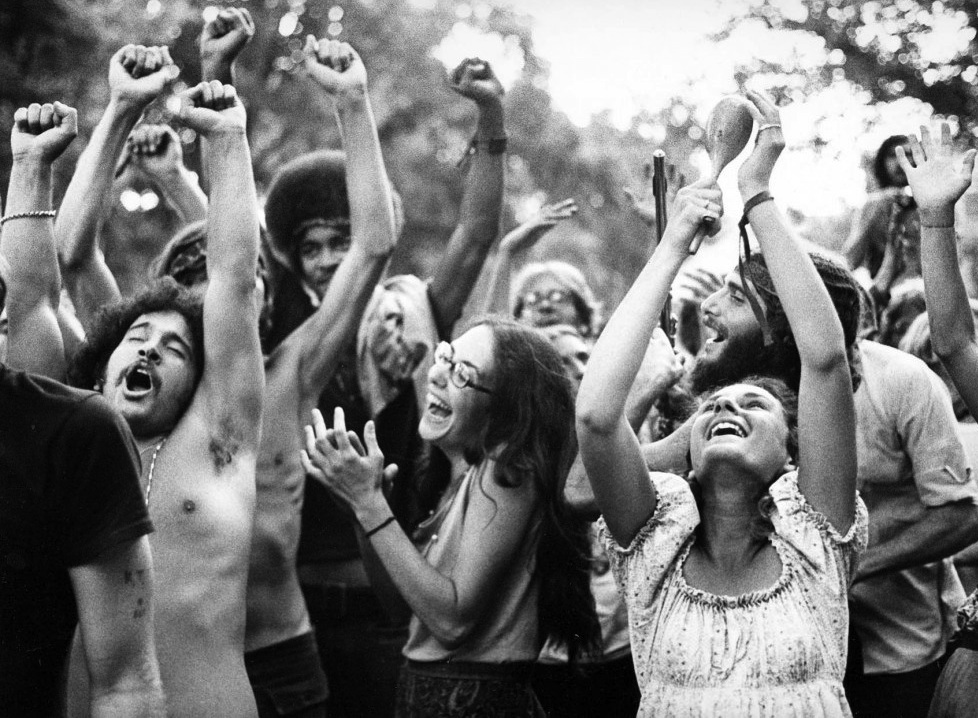By Gloria Borroni
One of my favorite literary movement of all time, especially when I was in my rebellious teenage years, was the Beat Generation. The exponents of this thinking current were the ones who rebelled against all cultural and social norms of the 50s, that they considered to be old-fashioned. The Beat Generation is often described as a counterculture.
The term counterculture can be defined as the culture and lifestyle of those people who reject or oppose the dominant values and behavior of mainstream society during a well-defined era. In other words, counterculture is used to describe all those subcultures that in some way express hostility or rebellion against the ideas of the public, towards social, cultural, political, or economic issues. It means being the black sheep in a world dominated by white. The ideas generated by the Beat Generation influenced some of the best-known counter-cultures in history: hippies, punk, Generation X. What all these movements had in common was the need of young people to revolt against the norms dictated by mainstream society – they were all emotional and angry, and they had no desire to conform.
I asked myself: what does counterculture mean today? Are young people nowadays even interested in rebellion? If so, how? Arguably, the current situation of our society provides fertile ground for countercultures to grow and become a phenomenon, like has happened in the past. Most of my peers are angry, but maybe not enough to create a powerful movement. If we think in terms of ideals, our generation shares at least some of the core beliefs rooted in the hippie movement. Instagram and social media in general are full of accounts that promote the eradication of sexual taboos, the overthrow of notions of modesty to leave space for an open and constructive discussion about the human body in all its beauty. Organic, vegetarian food is now “cool”, in the sense that it is the ethical thing to do to go against processed food and the meat industry, with the larger goal of improving the health of people and the planet. Ecology seem to be a big concern, including being opposed to waste and the pollution of the environment. The freedom to express one’s identity is one core interest of young people nowadays, resulting in bold clothing, makeup, and hair choices, like back in the 60s.Compare this all to ideas of free love, encouragement to explore sexuality in its various forms, and so on.
And yet, it is exactly for the same reasons we are so like the old hippies that we are incredibly far for creating such a strong movement. The whole idea of counterculture in our time has been commercialized. If, in the past, the rebels were those who were revolting against the consumer, and capitalist society, nowadays the rebels are those that are a part of it. Being different is mainstream. For example, festivals are sponsored by big corporations, and are expensive to attend. Also, thanks to the development of technology, individuality is cool (as it should be), and is not something that only young, carefree people defend. The world-wide web has definitely brought people closer to each other, making the term “culture” harder to comprehend, define, and analyze.

Therefore, if the old counter-cultural beliefs are now part of mainstream society, who are the new rebels? Is Donald Trump an actual modern punk? In a time when we are given so much freedom to revolt, and to share our ideas, the whole concept of counterculture is not applicable anymore. In the modern Western world (and only in this part of the world, to be fair) there is such a thin line between opposition and mainstream, that it is hard to establish which is which, and therefore decide as a group who to fight. If the modern idea of dissent is embodied by individuals like Donald Trump, then I’d rather declare the death of counterculture once and for all.
Gloria Borroni, Class of 2018, is a Literature and Media major from Milan, Italy.

